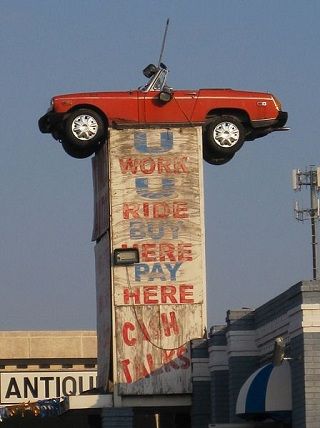Examining the Reduction in Vehicle Miles Traveled
In response to my piece about a recent reduction in VMT (vehicle miles traveled), frequent commenter Larry Lemmert writes:
I don’t think that this decline has anything to do with altruistic motives. People are driving less because their income is going down on the average due to less people working now than 10 years ago……
You raise a good point, Larry. Is altruism behind this thought process? For some, yes. For others, hell no; it’s a matter of personal micro-economics; in some cases, they simply need less mobility, or they see car ownership as offering declining utility and rising cost, while the alternatives are becoming more viable every year.
I believe young people in particular are starting to question the value of owning a big piece of super-expensive steel that they may not really need, not unlike the phenomenon 10 years ago when 20-somethings rethought the assumption that they needed a land-line-connected telephone in their homes.
As other folks have commented, VMT is really only about 3% from its peak, so it’s a bit premature to assert what if anything this means, but I look at this as the harbinger of a significant trend. Look at this in terms of a macro-trend in transportation. How confident are we that mobility in 2050 will be accomplished predominantly with individual car ownership? I find it perfectly credible that we’re wisely beginning to question the validity of having a 4000-pound piece of steel, declining in value every day, parked 23 hours a day, with a single occupant 75% of the time it’s in operation.
Some will see this as “doing the right thing,” where others will view it as common sense.


Changing work patterns are likely to have an impact on miles driven – in the past, office tasks had to be carried out in the office, now however it is possible for many people to carry out some of their duties at home or on line.
In some businesses it is already becoming common for staff to spend less time in the office – in some cases carrying out most work at home or in a small local office rather than going into the main office every day. More meetings are also taking place using teleconferences or Skype rather than travelling to a face to face meeting.
There is also the factor that vehicle ownership is now so ordinary and mundane that nobody is impressed any more by the car a person drives, and driving is now so unpleasant due to traffic etc. that people no longer drive for fun!